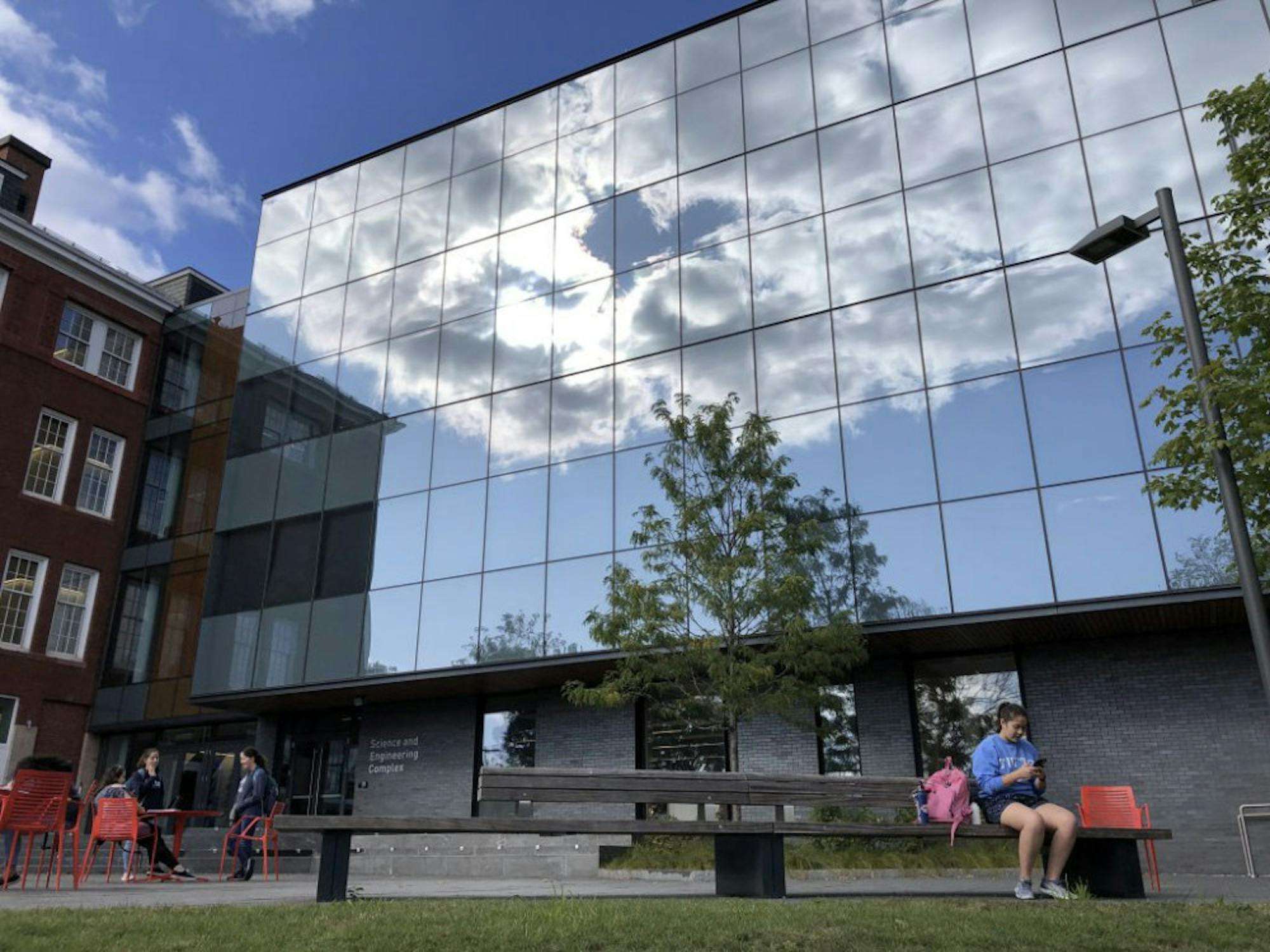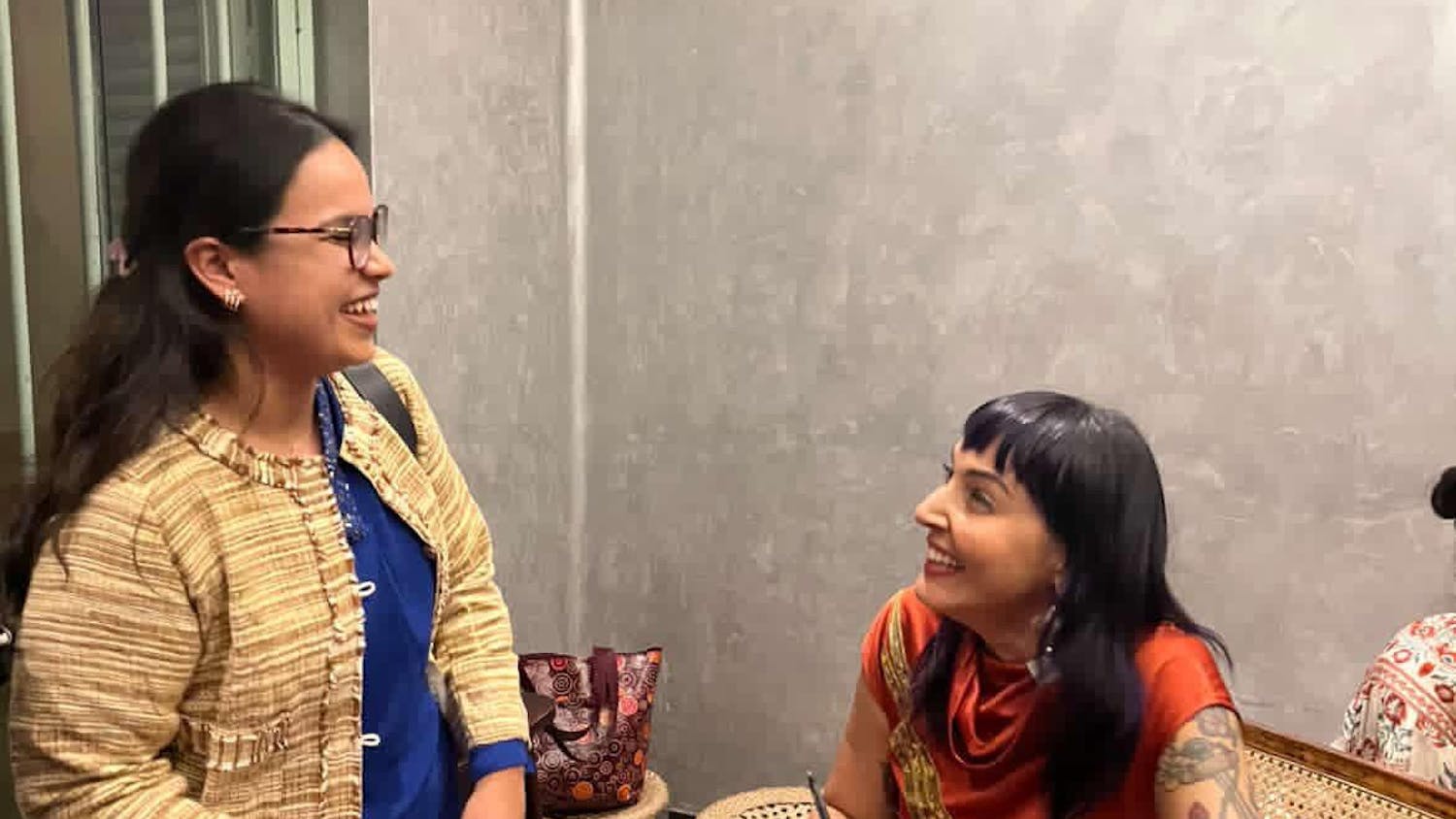While previous installations of this series have highlighted the humanities (including law and education), STEM-oriented students at Tufts also have the opportunity to pursue 4+1 degrees, including through the School of Engineering.
The Fifth-Year Master’s Degree Program at the Tufts School of Engineering boasts many engineering degrees to choose from, allowing students to double-count two courses towards both their bachelor’s and master’s degrees. These students are typically able to graduate within one extra year, hence the program’s title, “Fifth-Year.” However, some students graduate after just one additional semester.
Dean Karen Panetta, who oversees all the graduate and certificate programs under the School of Engineering, elaborated on how this unique program serves to prepare students for the world outside of undergraduate education.
“My biggest role is [to support] all [of] the graduate students within the School of Engineering,” Panetta said. “[I] help them get ready for graduate school … [and] make sure they come out well rounded and ready to hit the ground running for whatever their future pursuits are.”
Interestingly, many students who enter the engineering Fifth-Year Master’s Degree Program opt to pursue different fields than what they studied in undergrad, highlighting the flexibility of the program. Furthermore, students from the School of Arts and Sciences are permitted to join this program. According to Panetta, this academic diversity is what makes the program so special.
“So many students come in from Arts and Sciences,” Panetta said. “[Students majoring in] economics [or] physics [can] pursue electrical engineering or computer science. It’s becoming very interdisciplinary and very diversified.”
When crafting the various master’s programs, Panetta met with 30 CEOs from high-tech Boston companies to ask what would help to distinguish Tufts graduates from the others in the area. According to Panetta, CEOs are specifically looking for well-rounded students, the exact type of student that the 4+1 program seeks to cultivate.
“They said, ‘We want them to be well rounded and have good leadership skills,’” Panetta said. “[So] I forged the whole program around that.”
Many students in the program have gained valuable experiences through their studies, including fifth-year student Ishan Ahuja. He majored in chemical engineering as an undergraduate and is currently working on a master’s in biomedical engineering on the thesis track.
“I liked my undergrad, but I think I wanted to specialize a bit more,” Ahuja said. “My program is a little unique in that it’s nestled between ChemE and the BME departments. I think having some professors that are ChemE focused [and] having some that are BME focused … [is] the best of both worlds.”
For many students, the Fifth-Year Master’s Degree Program offers a shortened, cost-effective route to obtain a master’s degree.
“I think a master’s, especially with a thesis option, is huge … [especially] if you didn’t have enough undergrad research experience, or you weren’t necessarily in the field that you hope to be [in post-grad],” Ahuja said.
Max Levene is another fifth-year student in the School of Engineering. In undergrad, he was an American Chemical Society-certified chemistry major with a minor in entrepreneurship. Now, he is pursuing a master’s degree in BME and works in Distinguished Professor David Kaplan’s cellular agriculture laboratory. He has enjoyed being a graduate student in the 4+1 program due to the rigorous level of research he is able to pursue.
“One thing I’ve noticed as a grad student is … [that] there’s more doors that have opened up,” Levene said. “And there’s also more time to do higher-level things.”
Specifically, Levene is working on the development of plant-based scaffolds for cultured meat in both the Kaplan Lab and the Tufts University Center for Cellular Agriculture. He was motivated to switch to BME because of the option for a thesis track.
“The thesis track has allowed me to take a slightly lighter course load to emphasize my research in the lab, which is something that I really enjoy the opportunity to do,” Levene said.
Due to the interdisciplinary nature of the program, Levene was able to use many of his classes from his undergraduate ACS chemistry major toward the BME degree. Additionally, Levene was able to join a co-op during his first semester where he worked at Tender Food in Somerville, all while taking classes at Tufts.
“I got a very clear exposure to the difference between academia and industry,” Levene said. “The startup has to raise money to satisfy their shareholders and investors … versus in academia, you’re just supplying the world with information, so you have the ability and resources to just continuously go down rabbit holes.”
Levene highly recommends the fifth-year program to current Tufts undergraduates, as it has enabled him to further explore his passion for plant-based food.
“If you have the capabilities and the motivation to just do one more year, [you should because] you’re not really going to get this opportunity again,” Levene said.
After graduation, Levene is interested in exploring the industry and possibly revisiting the idea of a PhD later on.
However, the master’s degree programs in the School of Engineering are not limited to just one year post-undergrad. For instance, Sai Ashish Sarvasetty is a second-year master’s student in the BME department. Sarvasetty completed his undergraduate degree in medical electronics in India. Now, Sarvasetty is a part of the Kaplan Lab and is currently working on optimizing serum-free media.
Sarvasetty elaborated on the specifics of his research.
“Cultured meat is the greatest thing in today’s world of research … and Dr. David Kaplan is trying to spread its research as far as it can,” Sarvasetty said. “To make any kind of cultured meat to grow these cells, you require [a] special kind of media, which is the environment for the cells to grow in. … [However], this media consists of [fetal bovine serum] … [but] the goal is to make [the] cultured meat animal-free. So, we are trying to optimize this media by disregarding the fetal bovine serum and having only plant-based [nutrients].”
Unlike Ahuja and Levene, Sarvasetty opted for the non-thesis route, as it grants him more time to take courses at Tufts as well as pursue this groundbreaking research.
“[It] actually helped me to take … a lot of courses [and] helped me to choose my research interest,” Sarvasetty said.
While he has enjoyed many of his graduate-level courses, Sarvasetty specifically highlighted his BME Entrepreneurship and Strategy class.
“BME Entrepreneurship and Strategy [is important for anyone] who makes any research … [who wants] take that from lab to market,” Sarvasetty said. “[It] is an essential knowledge to know when you’re working in science.”
Whether they write a thesis or pursue a co-op, students in the 4+1 program are able to enhance their education with valuable research experiences as well as bolster their applications to industry start-ups, nonprofits or even PhD programs. Panetta expressed a high level of confidence in the students who graduate from this unique program.
“When our students get out, it’s not ‘Will I find a job?’” Panetta said. “It’s ‘Which one will I take?’”






